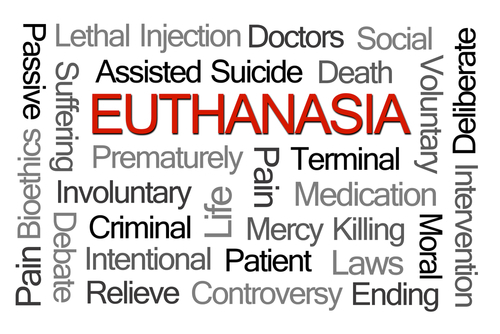SC allows 'living will' for terminally ill persons
IANS Mar 09, 2018
The Supreme Court has, under strict guidelines approved passive euthanasia to be granted by the medical board, if a person makes a 'living will' in advance for withdrawal of life support in case of reaching an irreversible stage of terminal illness.

The Supreme Court on 9 March, has said a person has the "right to die with dignity" and can make an advance "living will" authorising the withdrawal of life support system if in medical view he has reached an irreversible stage of terminal illness. While allowing a person to make the advance directive or living will, a five-judge Constitution Bench headed by Chief Justice Dipak Misra, however, attached strict conditions for executing the "will" made by a person in his normal state of health and mind.
In the living will, a person can state in advance that his or her life should not be prolonged with a ventilator or artificial support system. The bench, also including judges A.K. Sikri, A.M. Khanwilkar, D.Y. Chandrachud and Ashok Bhushan, laid down guidelines on who would execute the will and how the nod for passive euthanasia would be granted by the medical board.
Recognising the "right to die with dignity", the court permitted a person to draft in advance a living will in case she/he slips into an incurable condition. "To deprive an individual of dignity at the end of life is to deprive him of meaningful existence," said Justice Chandrachud while allowing the living will for passive euthanasia.
The court said the life support can be removed only after the statutory medical board declares the patient to be incurable. The bench said its guidelines and directives should remain in force till a legislation was brought to deal with the issue. "Life and death are inseparable. Bodies involve continuous change but mind remains constant; death represents culmination of life, and freedom, liberty are the core of a meaningful life," Justice Chandrachud said.
The court pronounced four separate but concurring judgements. The court's verdict came on a plea filed in 2005 by an NGO Common Cause seeking the right to make a living will authorising the withdrawal of life support system in the event of the will-makers reaching an irreversible vegetative state. Advocate Prashant Bhushan, appearing for the NGO, had said that since a patient under coma cannot express his/her wish, law should allow him/her to put it down in writing in advance that he/she should not be tortured. In the absence of a law authorising doctors to do so, they keep incurable patients on life support, he said.
-
Exclusive Write-ups & Webinars by KOLs
-
Daily Quiz by specialty
-
Paid Market Research Surveys
-
Case discussions, News & Journals' summaries